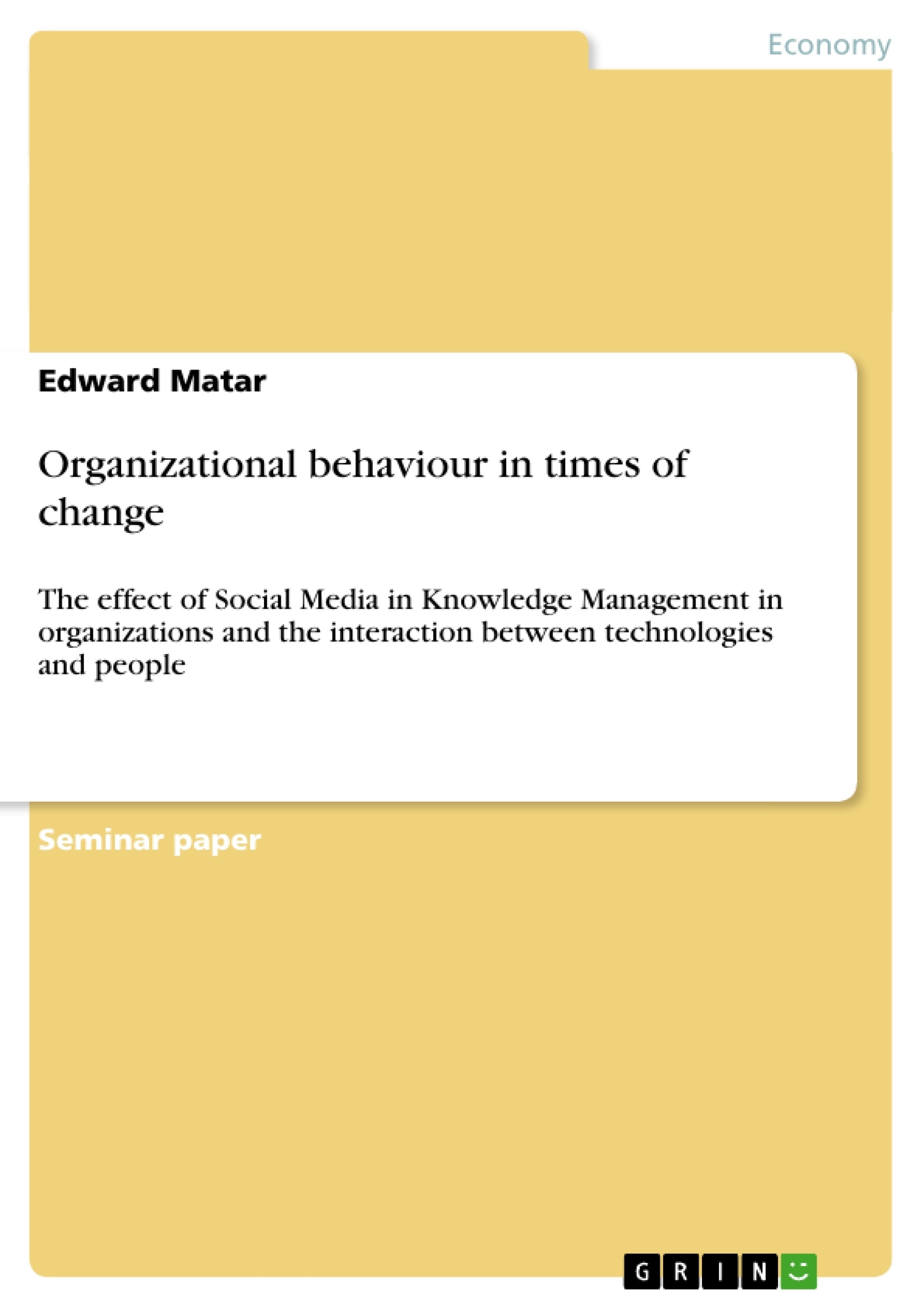Excerpt
Abstract
Over the last years, the topic of knowledge management has rapidly grown in importance among business managers and information systems practitioners. Business organisations worldwide increasingly recognize the effective use of knowledge as a key-differentiating factor and as the most important resource for potential economic success (Stewart, 1998). As a result, many IT companies are implementing new applications and techniques to better manage knowledge.
Knowledge management systems are, in fact, quite common, but a truly successful one is rare. To be successful, such a system must create an environment in which people can share their best practices, increase the quality of their knowledge, and help each other solves problems. Systems that effectively capture and build intellectual capital while minimizing the burden on individuals, however, are unusual (King, 2002). Nowadays more and more organisations discovering social media tools like wikis, blogs, and forums and use them to capture knowledge.
Introduction
Once Again we are at a threshold of change in the area of Knowledge Management. Social Media is becoming increasingly important.
In the old world order, knowledge was usually created and stored as a point in time. In the future, organizational policy or insight may not be formed by an individual creating a document that goes through an approval process and is ultimately published. It will likely begin with an online conversation and it will be forever evolving as more people contribute and circumstances change. (Reichental, 2011)
The stock of knowledge that resides in an organization is called its intellectual capital, which is the sum of everything that an organization knows that gives it competitive advantage - including its human capital, structural capital, and relationship capital. (Glinow)
The common Social terms ‘online communities’ or ‘Social networks’ are used to describe self-organizing groups whose members might live or work in dispersed geographical settings but who still possess common interests, share knowledge, and take part in unified learning experiences. Such communities bring many potential benefits: enhanced and mutually-beneficial support and communication among members; the sharing of best practices, including a broad range of knowledge, common interests, and feelings; and the creation of powerful environments that enable social and intellectual connections.
However, the act of achieving a successful community for promoting communication, improving social interaction, and increasing productivity poses serious challenges, particularly in terms of innovation. The main challenge facing online community technology is how to best enable members to communicate, collaborate, and coordinate so as to facilitate knowledge capture and utilization.
Research topic
This paper takes a comprehensive view on knowledge and argues that defining knowledge management through technological or social systems alone engenders the bias in overemphasizing one aspect at the expense of the other.
As i will show later, technologies and social systems are equally important in knowledge management. Therefore I will try to show the effect of social media tools on knowledge management in my Company “SWZT” on a case study and how to manage the knowledge from the Social interactions from the Users.
I will compare how the knowledge management has been practiced 10 years ago and how it is done nowadays and in detail I want to find out how to best enable members to communicate, collaborate, and coordinate so as to facilitate knowledge capture and utilization.
Keywords
Knowledge Management, Knowledge Management Systems, Social Media, Intellectual Capital, Technologies
“Knowledge Management has come of age and it is now time to reap the benefits.
Organizations that figured out how to secure the meaningful value from helping people share knowledge are thrilled with their results and can´t imagine working any other way.
The Digital world has begun to reshape KM. Online social networking has shaken up traditional KM. Although new technologies always present new challenges, no KM function can ignore this opportunity. “ (Carla O´dell, 2011)
But before we understand the effect of social media and the new technologies, we have to understand Knowledge Management.
1. History
“Knowledge Management gained prominence during the 1990s as an innovative approach to redirecting the energies and activities of organizations by enhancing the generation, flow, and use of internal knowledge.” (Wallace, 2007)
However, the intellectual origins of knowledge management are both deeper and broader than have been posited in the literature to date. Influences of philosophy, economics, education, psychology, information and communication theory, and library and information studies have been almost completely overlooked. (L.Prusak, 2001)
Since the globalisation has overcome us, KM became very important for the big players. The Volume of Data and the complexity to understand knowledge in a fast way and in time has been reduced.
L. Prusak compared the correltations in a article in the IBM Journal Nr. 40 in 2001 in:
- Economics
- Sociology
- Philosophy and psychology
2. Economics:
“During World War II, observers noted that building the second airplane of a given type took considerably less time than the first one, and the second airplane had fewer defects than the first. In other words it was proven that workers really did learn from experience.” (L.Prusak, 2001) Workers started to learn from the experiences and captured the learned for future processes.
Nowadays every information or knowledge can be found in Internet. The problem is just to filter it from the diversity of information. Nothing has changed, we still learn from the experience of others, just faster than 50 years ago.
[...]
- Quote paper
- Edward Matar (Author), 2012, Organizational behaviour in times of change, Munich, GRIN Verlag, https://www.grin.com/document/270008
Publish now - it's free






















Comments